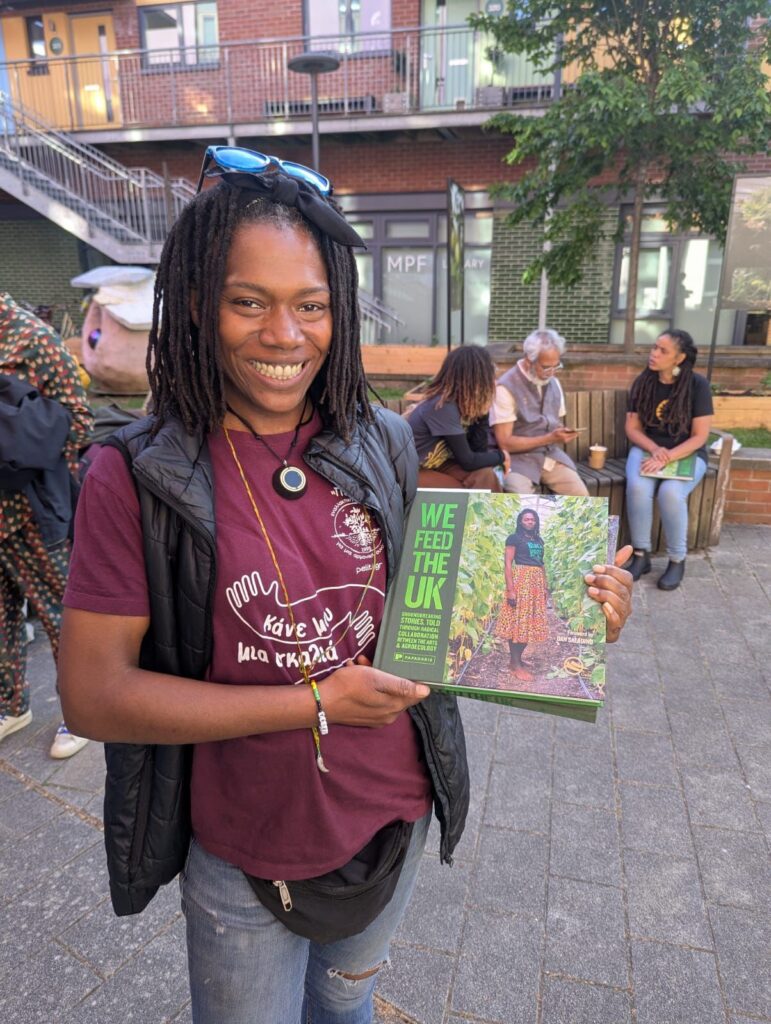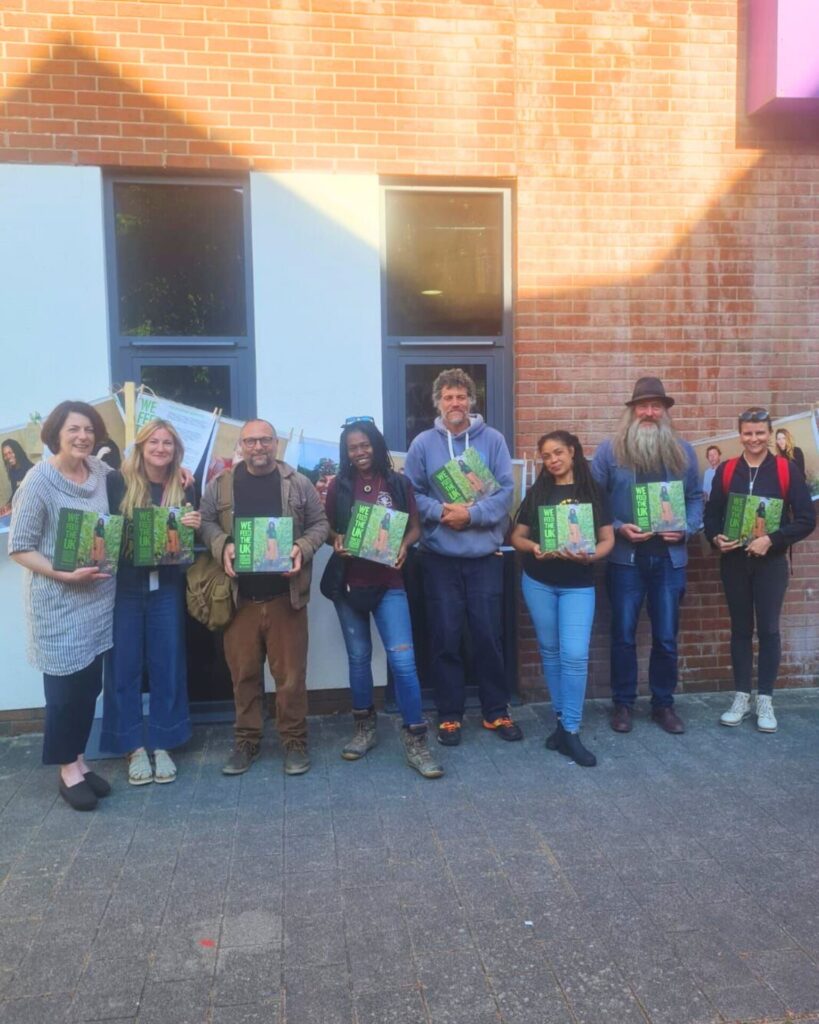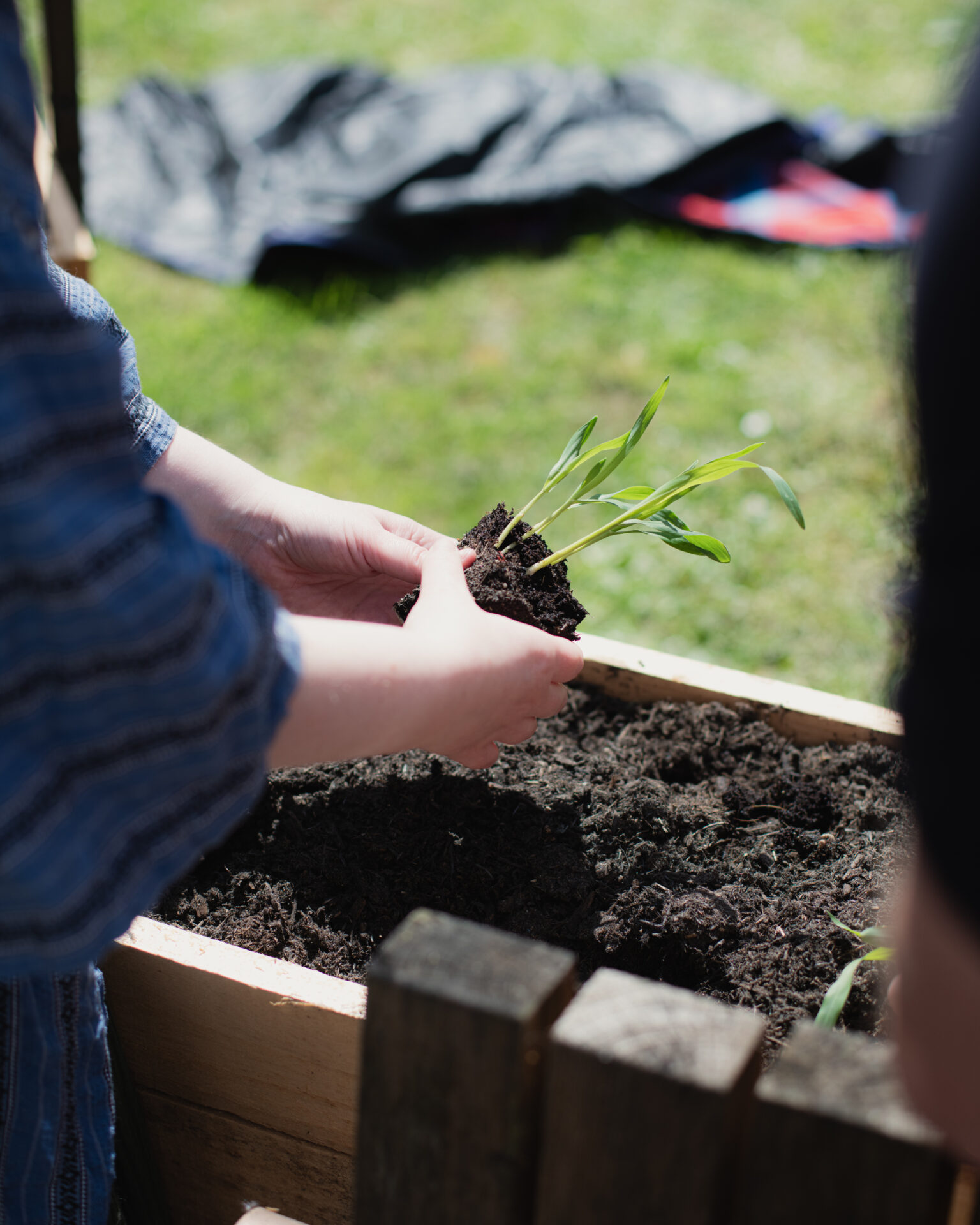In the warm May sun, We Feed The UK burst into life with a vibrant abundance of storytelling and knowledge sharing at our Open House event.
An incredible lineup of speakers from the arts and farming world drew crowds to learn about food sovereignty, agroecology, planetary health, and community connection.
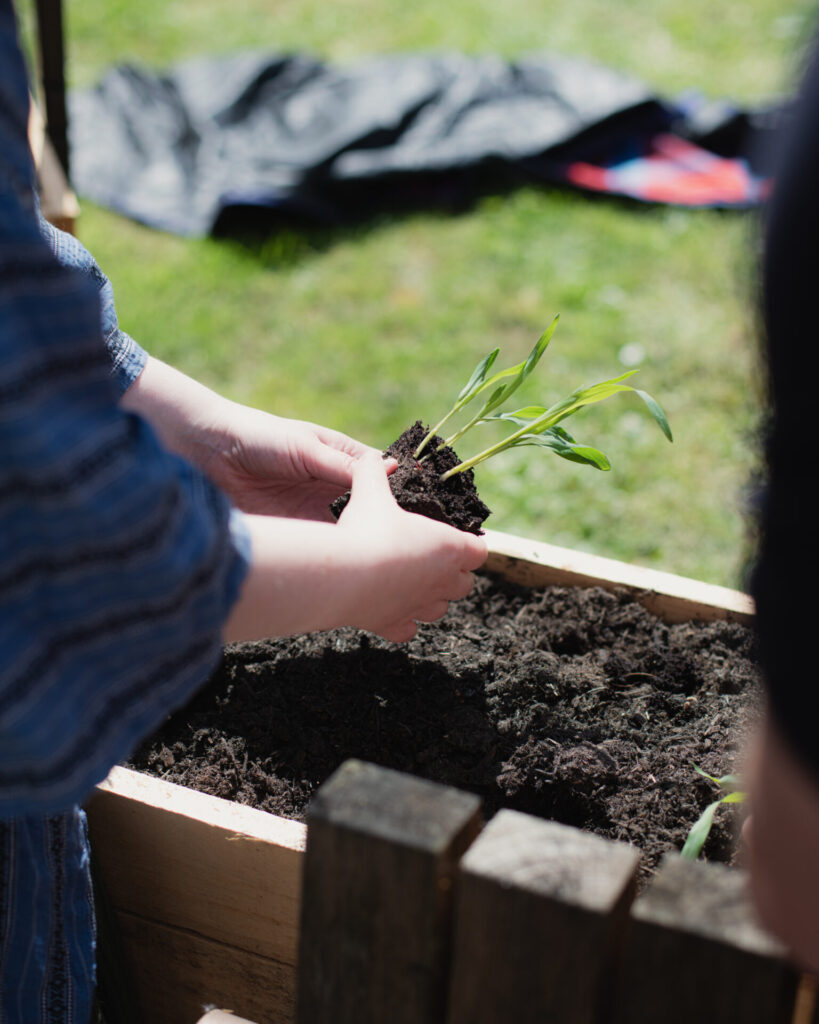
The day opened with an intimate foraging of the Martin Parr Foundation archives, with the renowned photographer, Martin Parr, himself.
Combing the collection for agricultural works from throughout the years, Martin showed pieces by photographers including Chris Killip and Tessa Bunney, as well as his own projects focused on allotments in Germany and the Black Country.
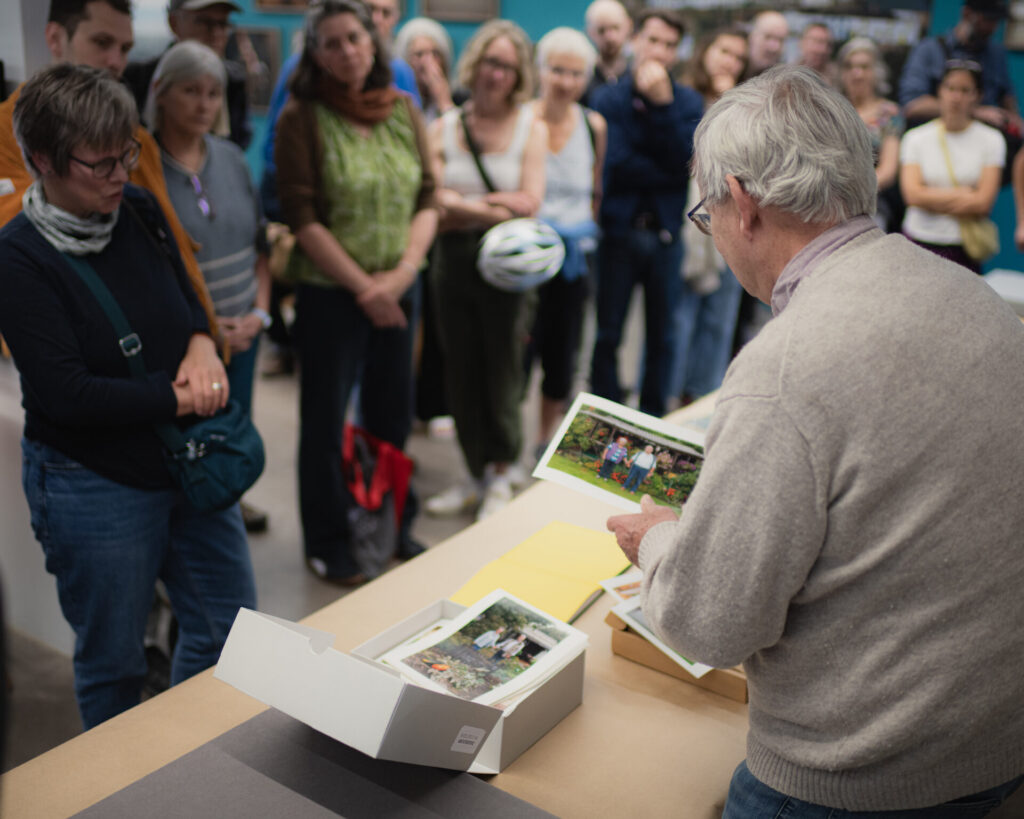
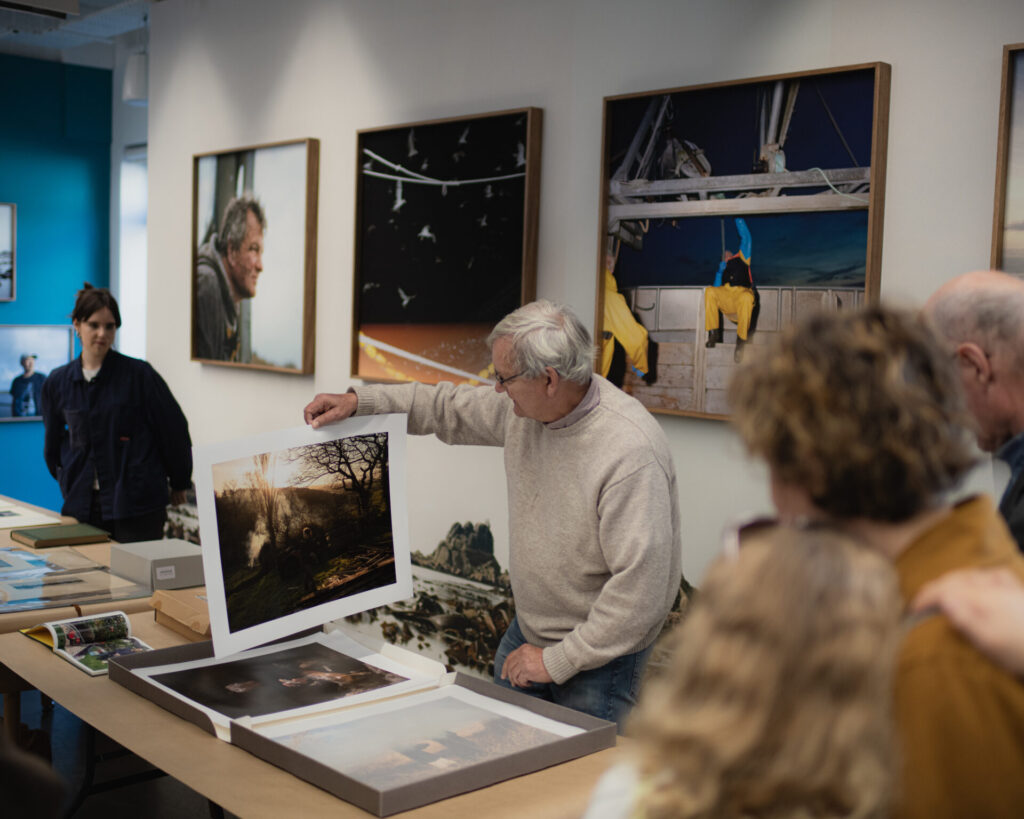
Gallery tours led by photographers from We Feed The UK flowed throughout the day, as the artists shared their thoughtful reflections from the projects and how the commissions have moulded their practice.
Having learnt about the importance of soil from Stuart Johnson on her early visits to his farm, Johannah Churchill spoke of her revelation that the magic at our feet is as precious as the constellations above our heads. This realisation inspired her series Constellations, a curious microscopic exploration of the minute ecosystem engineers Stuart shares his fields with.
Yvette Monahan expressed her gratitude for the long-form approach to the commission. Repeat visits over the course of a year allowed time to learn of the depth of love and devotion Helen Keys, Charlie Mallon, and all agroecological farmers have for the land.
“The work I created for We Feed The UK feels like a meaningful contribution to the global conversation on biodiversity renewal. It also offered a valuable opportunity to further develop my photography practice within a deeply supportive network, an experience for which I am truly grateful.”
Johannes Pretorius, photographer
The auditorium held audiences seeking knowledge on localism, future-proof fishing practices, and heritage grains, featuring collaborators from across the project.
Author of A Small Farm Future, Chris Smaje, joined Helen Keys, of Mallon Farm in Ireland, one of the protagonists for our Fibre story, to discuss the possibilities of reviving hyper-local supply chains. Alongside husband Charlie Mallon and a community of spinners, weavers, and retired farmers, Helen has been regrowing the Irish flax industry in a fair and scalable way, to form part of a chemical-free food production system on the island of Ireland.
Jof Hicks, a small scale fisher captured in Jon Tonks’ series A Fish Called Julie for our Fishing story, joined Caroline Bennett of Sole of Discretion, and Phil Haughton of Better Food.
The trio discussed how consumers, business owners, and policymakers can navigate uncertainties around sustainable fishing practices amidst accreditation gaps and labelling loopholes.

Farmer Fred Price and baker Rosy Benson, photographed for We Feed The UK by Magnum photographer Lúa Ribeira in our Grain Rebels story, shared their incredible account of growing diverse wheat populations in defiance of monoculture and bad bread. Gerald Miles joined the discussion, telling Llafur Ni’s story of reviving rare black oats from the brink of extinction in Wales, and Hodmedods‘ Nick Saltmarsh brought in his experience of a UK beans and pulses revolution. The session closed with wordsmith Dizraeli captivating the audience with a rendition of his poem Seeds.
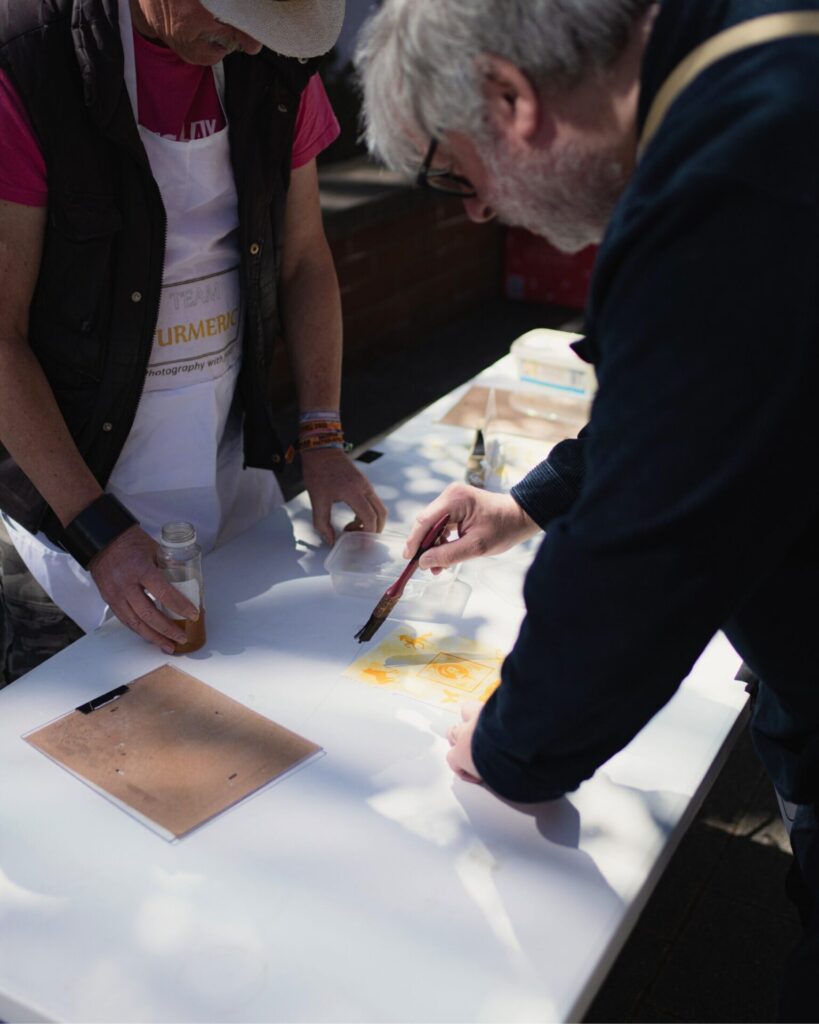
Gathered around a beautiful outdoor exhibit by Ayesha Jones, set in newly crafted community edible planters, attendees experimented with natural turmeric photography, formed heartfelt words into touching haikus, fashioned wormeries, planted seedlings, and moulded wildflower seed bombs ready to spread biodiversity in forgotten verges.
The air was filled with verses from the amazing Hot Poets, alongside the scent of freshly baked bread, and a shared feeling of active hope for the future of food sovereignty.
“I’ve found the entire day really enriching. Everything from curing my fear of worms, to getting inspiration for my allotment, and the opportunity to talk with real experts. It’s exceeded my expectations.”
Alex, event attendee
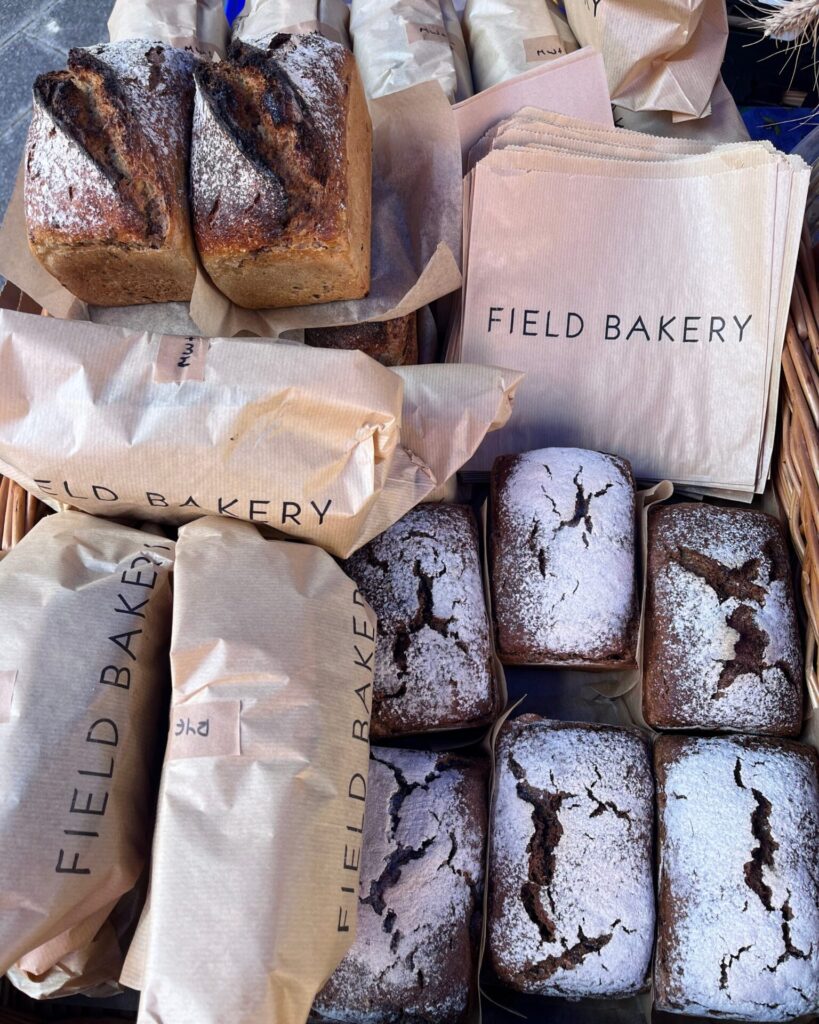
“It’s so nice to see actual photos about life in the UK – about farming, about fishing – because, although we know it’s happening, it’s not something often depicted in such an interesting yet down to earth way. We are surrounded by it but we don’t often think about it.”
Event attendee
The day culminated in a special headline session with renowned food author Dan Saladino in conversation with global rice hero Dr Debal Deb. Their talk marked the premiere of a new film, Dr Debal Deb and The Last Harvest, made by The Gaia Foundation in collaboration with filmmaker Jason Taylor and funded by the A Team Foundation.
Debal featured in the international predecessor to We Feed The UK, We Feed The World, in 2018. For decades, he has been standing against the 100,000 varieties of rice lost in the drive for intensive food production, and the loss of resilience suffered alongside. On his farm in Odisha, Debal has brought over 1,400 varieties of rice back from the brink of extinction, each with unique properties imbued by the generations of farmers that stewarded them for millennia.
“The thousands and thousands of varieties of rice were created by farmers for thousands of years. This is the genetic material that is feeding the entire population of the world.”
Dr Debal Deb
The film is due to be released later this year, with more details coming soon.
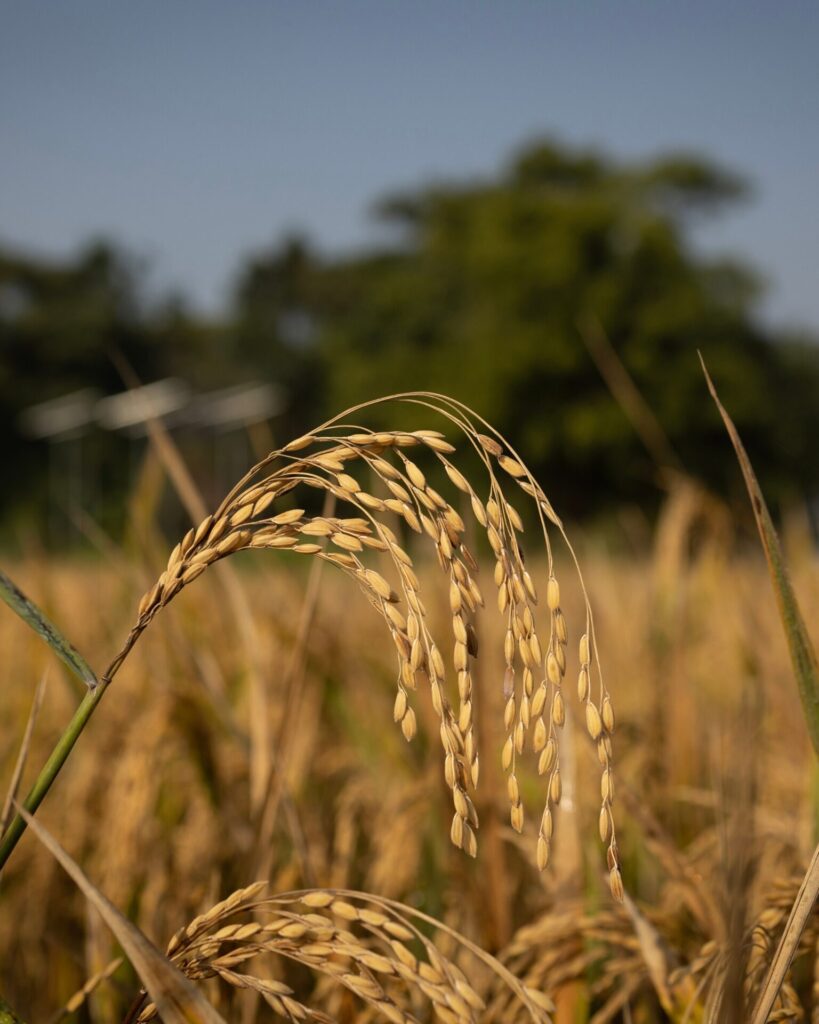
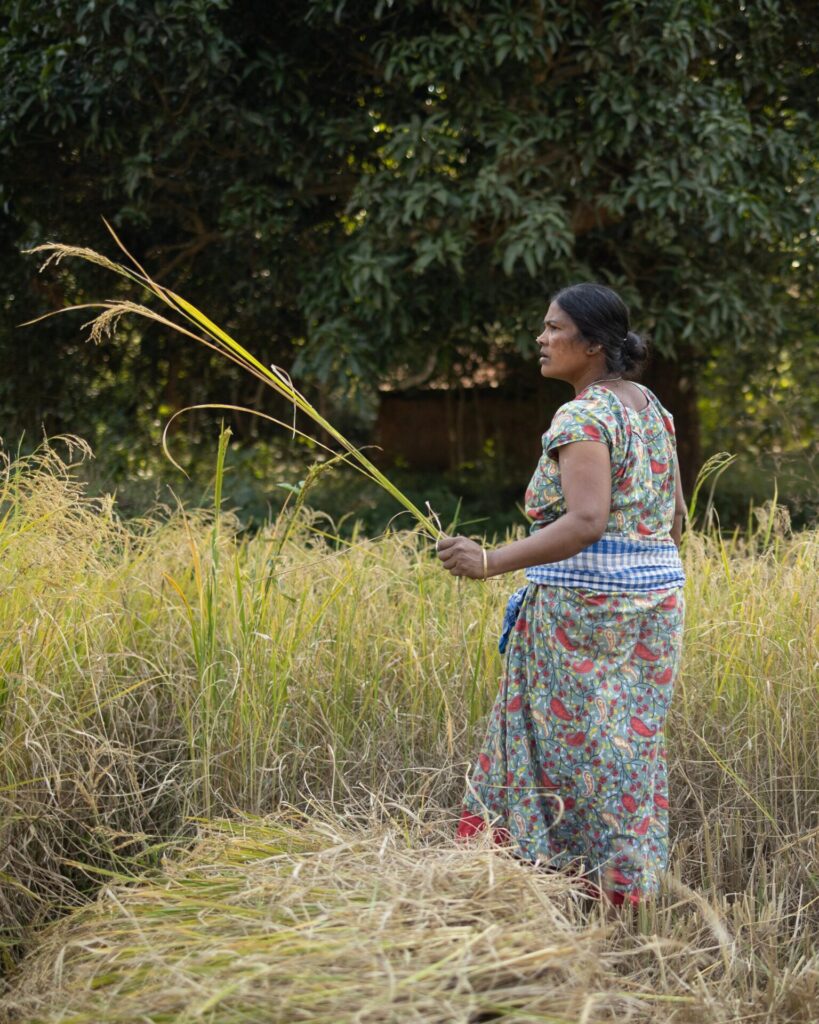
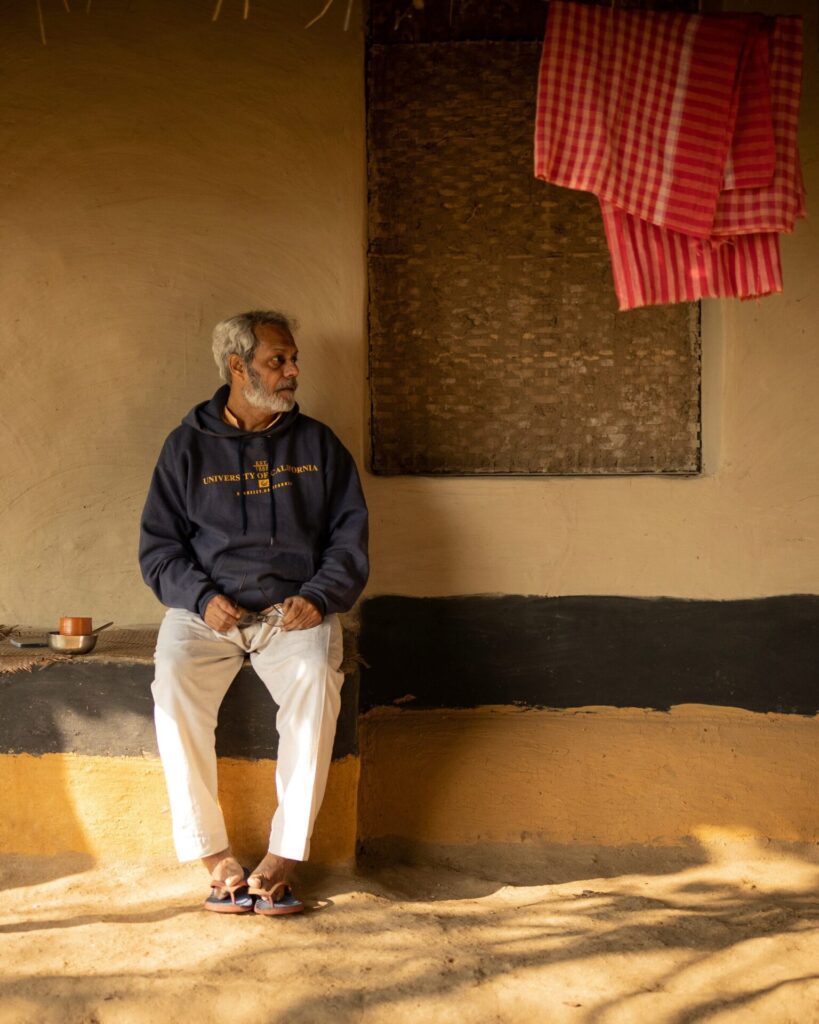
We are deeply grateful to have had the opportunity to host this space for learning, collaboration, and celebration in honour of food sovereignty. With thanks to all those who attended and contributed, making the day truly special.
The Complete Collection of Photography and Poetry from We Feed The UK is on display until 22 June, and is published by Papadakis as a book, available to order now. Filled with the incredible stories of our inspirational collaborators, every order supports us in opening more eyes to regenerative farming’s potential.
